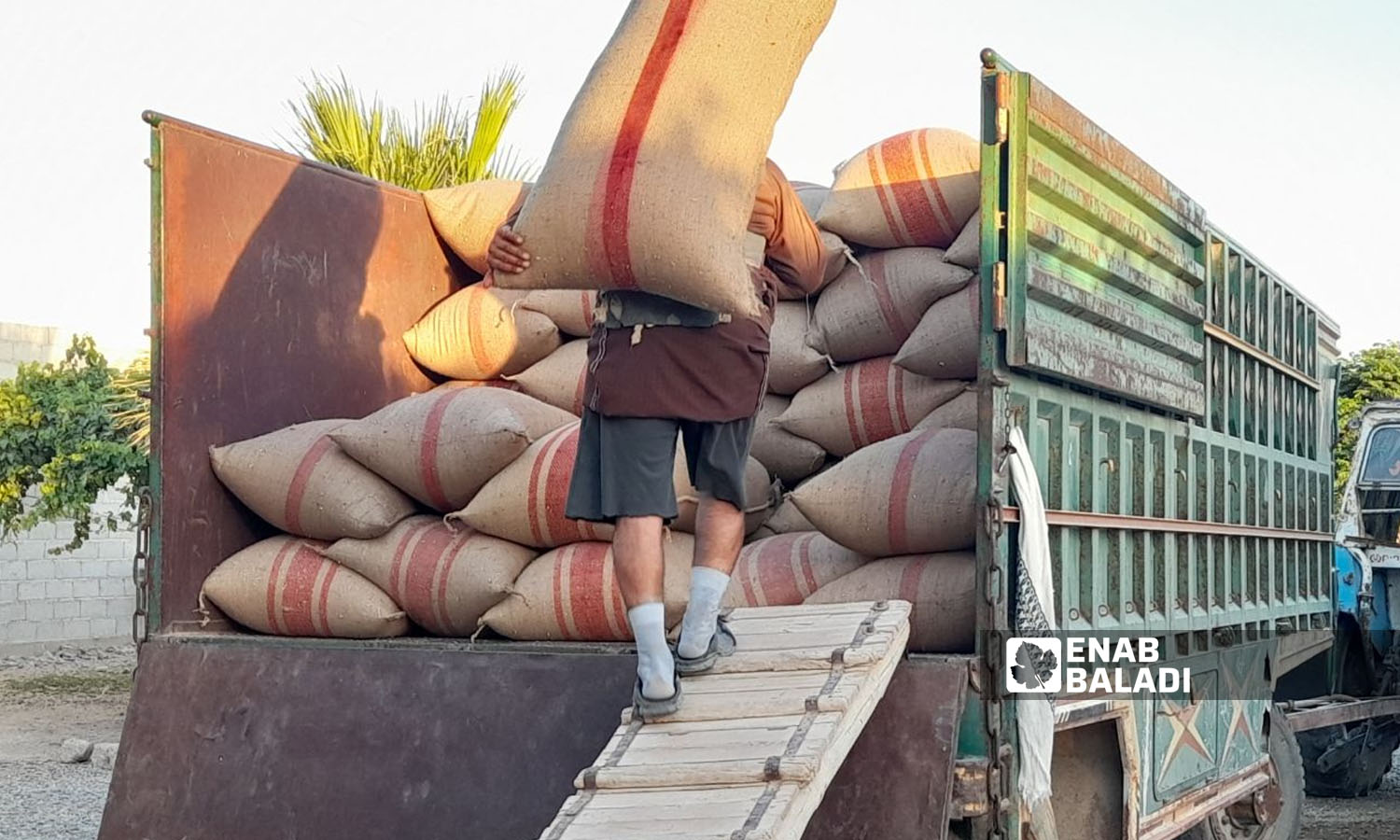



Raqqa – Hussam al-Omar
Saleh al-Qashat, 44, had expected that early preparations for the agricultural season would contribute to increasing the productivity of the wheat crop in his village of al-Salihiya in the eastern countryside of Raqqa, but all of this did not come to fruition.
Al-Qashat told Enab Baladi that he increased the amount of chemical fertilizer by half during the wheat season cycle, to put 75 kilograms per dunum (1000 m2), while he used to put about 50 kilograms each year, in addition to increasing the number of irrigation times, but all of that was wasted, as the production of a hectare of wheat was less than usual annually.
Farmers of Raqqa, which is controlled by the Autonomous Administration of North and East Syria (AANES), said that the productivity of wheat for this year decreased by a third, with the productivity of one dunum ranging between 200 and 400 kilograms, after it was more than 500 kilograms in previous years for the same area.
The farmers in northern and eastern Syria, including the farmers of Raqqa, planted about three million dunums during the current wheat season, and this area is completely irrigated, and most of it is irrigated by the waters of the Euphrates River and its Balikh tributary and the irrigation channels branching from them.
The farmer, Abdul Mohsen al-Ani, 38, of Hazima village in the northern countryside of Raqqa, said that the Autonomous Administration was very late in providing fertilizer and fuel to farmers.
Despite this, most farmers bought these materials and did not wait for the AANES’ allocations in the hope that the season’s productivity would compensate them for the extra expenses they incurred, according to what Enab Baladi monitored.
Al-Ani considered that agriculture in the countryside of Raqqa and most areas of northern and eastern Syria is experiencing its most difficult days, as it needs to increase the capabilities and efforts made, whether by the authorities managing the area or by international organizations that implement some agricultural projects and support farmers.
Raqqa-based agricultural engineer Hussein al-Rajab told Enab Baladi that the climatic change that occurred during this year contributed to a decrease in the productivity of the wheat season per dunum compared to previous years.
Al-Rajab pointed out that the cold waves and wind storms that the region witnessed contributed to hindering the growth of wheat grains during the period of growth of the “milky stage,” which marks the quality, weight, and resistance of the grain to agricultural pests.
One of the reasons for the decline in production is the poor quality of some types of seeds and pesticides, says the agricultural engineer, considering that some of these pesticides and seeds do not correspond to the nature of the climate in northern and eastern Syria, and most of them have been hybrids and manufactured for other climates.
On the 25th of last April, the Agriculture and Irrigation Committee of the Raqqa Civil Council warned of the spread of the “Sunn Pest,” which threatens to damage the wheat crop if farmers do not use the appropriate pesticides.
North Press Agency quoted Hammoud al-Khalaf, head of the Committee’s Protection Office, as saying that the region is witnessing a wide spread of the “Sunn Pest,” which causes direct damage to the ears of wheat.
The purchase price of wheat in the Autonomous Administration’s areas of control was set at 2,200 SYP per kilogram and is subject to the grading system, while the purchase price of barley was set at 1,600 SYP per kilogram.
if you think the article contain wrong information or you have additional details Send Correction